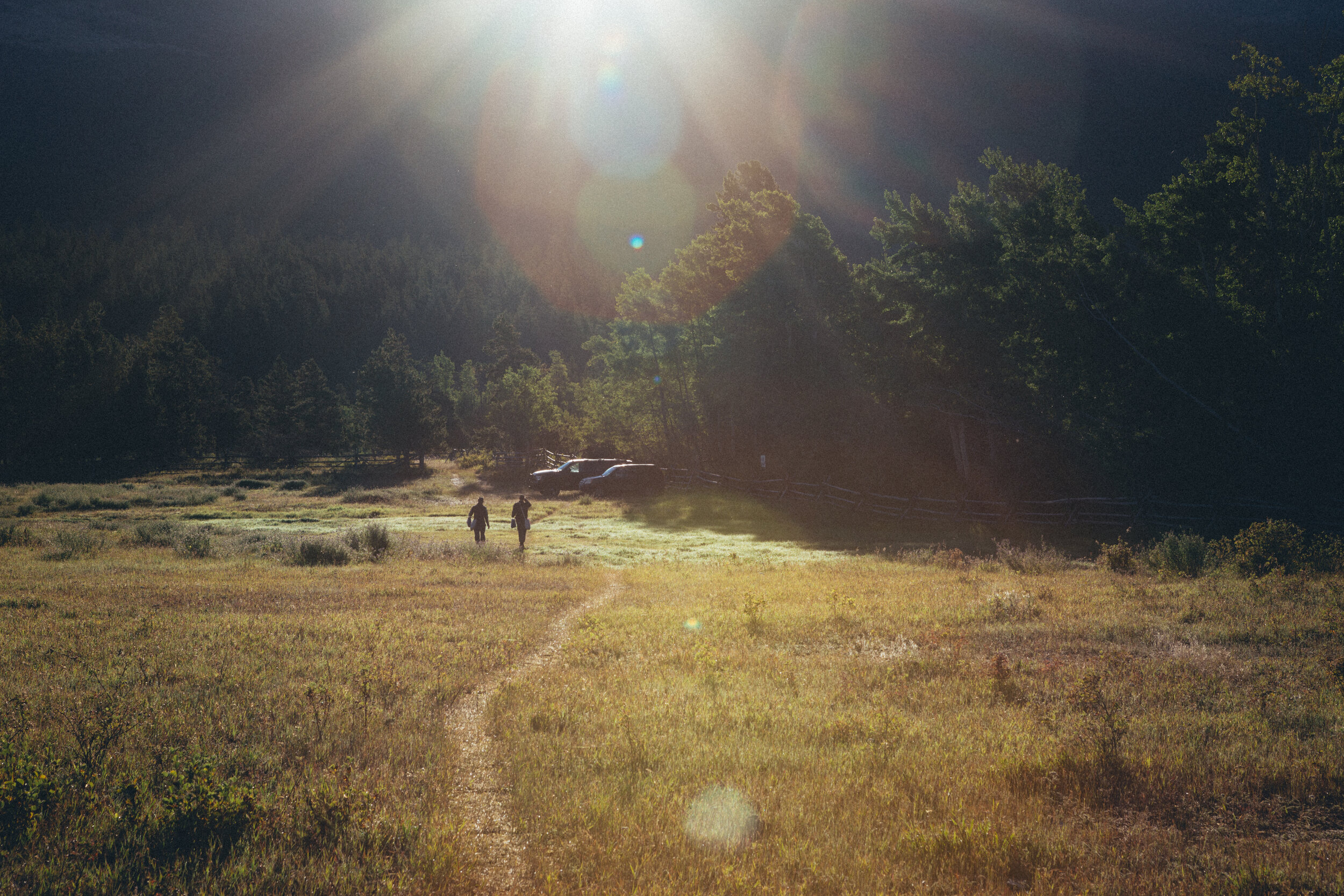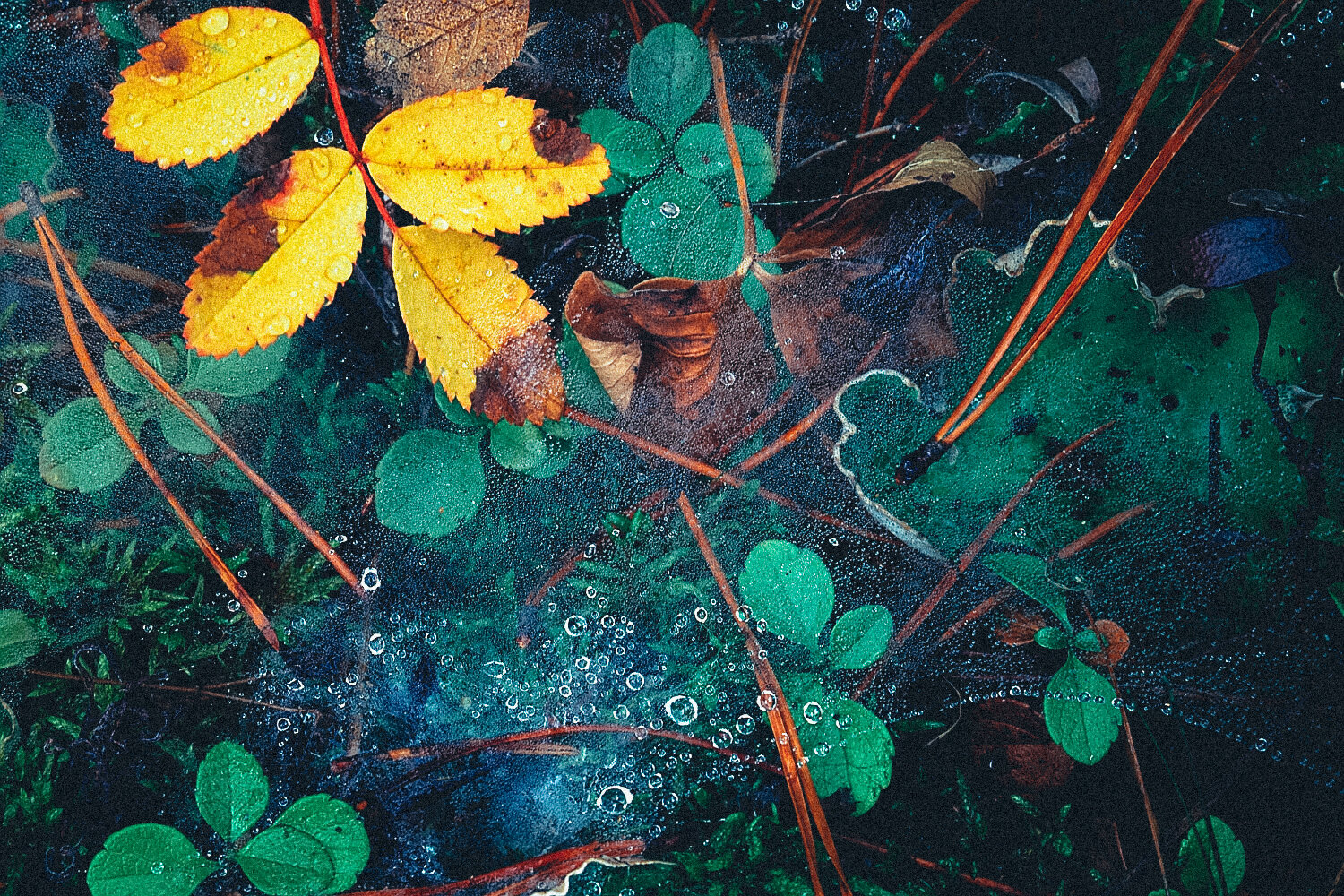
TFS hosts innovative, field-based programs for researchers, students, teachers, elders, and the community.
Research
The attributes of the region surrounding Tatlayoko Field Station make it a superb location for ecological research. Vastness, a high degree of naturalness, a wide variety of habitats and climate zones, and infrastructure to support researchers, all create an opportunity unusual in this era.
TFS promotes research in two primary ways: by conducting its own research program; and by hosting and supporting visiting scientists with their research programs.
Looking ahead, TFS plans to establish an ecological monitoring program at Tatlayoko and the surrounding region. Protocols will meet EMAN (Ecological Monitoring and Assessment Network) and other international standards to assure full compatibility with worldwide monitoring data, while at the same time providing accurate and vital information about the ecological health of our local area. As data accumulate over the years, we expect they will become invaluable to a broad range of scientists.
Tatlayoko Lake Bird Observatory
TFS FLAGSHIP PROGRAM
Each autumn tens of thousands of migratory birds pass through the Tatlayoko Valley on their southward migration. These include songbirds, waterfowl, diurnal raptors, and owls, all on their way from breeding grounds in northwest and west-central BC to wintering grounds in the southern USA and Central America. The Tatlayoko Lake Bird Observatory conducts long-term population monitoring of these migratory birds annually in August and September.
TLBO has operated at Tatlayoko since 2006, first by Nature Conservancy of Canada and since 2017 by BC Spaces for Nature (BCSN). In 2020 the banding station was managed by TFS under a contract with BCSN. Beginning in the 2021 season, TLBO will be entirely a Tatlayoko Field Station project. The station is located on Tatlayoko Lake Ranch, owned by NCC.
TLBO data are used by the Canadian Migration Monitoring Network (CMMN), and subsequently by the Canadian government, in long-term population monitoring analysis. TLBO data now contribute to population status assessments including those under the Species at Risk Act. All data collected by TLBO are publicly available from the Bird Banding Office (Canadian Wildlife Service) and on the NatureCounts website operated by Bird Studies Canada.
Tatlayoko Lake Bird Observatory has a highly-informative blog with daily updates from monitoring seasons dating back to 2009, plus a full collection of annual reports.
It is a privilege for TFS to be able to continue the work of TLBO. If you are interested in donating to the project (annual budget approximately $25,000 CDN), or perhaps volunteering, please contact us.
Education
The naturalness and beauty of the region surrounding Tatlayoko Field Station make it a superb resource for ecological and environmental education. Although infrastructure is limited, a wide variety of habitats are accessible. For students and educators able to be independent in a backcountry setting, the opportunities are endless.
As with the research program at TFS, we anticipate two aspects to our educational work. We will create a limited number of courses and programs that visitors can participate in here at TFS. We will also provide infrastructure and support for environmental and ecological programs that others bring to TFS. We anticipate educational programs will target all ages of students (K-12 and university), as well as adults.
At this early stage we are only able to offer use of the limited infrastructure currently at LCRH. We are hopeful that in the near future we will have much improved accommodations as well as food facilities. In the meantime, we we will work with educators to help facilitate programs they may wish to bring to the Tatlayoko Field Station. We are always happy to share our knowledge of the community and landscape.
If you have an educational program or course that you believe might fit well with the resources of Tatlayoko Field Station, please contact us. We welcome suggestions for programs which TFS could develop independently or in partnership with other organizations. We look forward to hearing from you.
Nature Days
Tatlayoko Field Station is a unique learning centre in BC in its ability to present groups with a range of habitats to view and learn about. Each course combines theoretical and practical elements, which is crucial for associated learning.
Students from Tatla Lake School have been attending the Tatlayoko Field Station for outdoor education days. Led by Audra Peterson, a teacher at Tatla School, and supported by a second teacher and two Educational Assistants, students are taken on selected habitat tours and discover the local fauna and flora.
Read More...
Ecology is explored in the Woodland/Grassland and Pond/Wetland areas while a play approach to learning is taken with smaller children. The various activities in the Nature Friday program are curriculum-linked, place-based environmental education programs on the land, history, and culture of the Tatlayoko Valley region. All aspects of the days’ learning fulfills part of the curriculum expectations for Science and Applied Skills.
Students have learned about weather, explored the weather station, observed patterns in nature, created leaf rubbings, and measured heights of trees using trigonometry.
Teachers use hands-on exploration, experiments, storytelling, drama and games to make learning come alive for students. We incorporate team-building options with a focus on improving co-operation and communication skills amongst peers, while keeping an educational element to all of the activities .
Students have been building on background knowledge of basic outdoor survival skills which include orienteering, q protocol for what to do if them become lost in the wilderness, as well as planning appropriately for trips into the wilderness. Basic skills like packing a backpack, setting up a tent or shelter and building are part of Nature Friday field days.
Outreach
Citizen Science
TFS endeavours to support a community of engaged and effective environmental educators by connecting them to resources, information, professional development, and networking opportunities.
Looking ahead, we are planning an extensive program of Citizen Science. This will include a variety of events and opportunities for participation by both local residents and visitors. Speakers, seminars, discussion nights, potlucks with a nature theme, films, citizen-led monitoring, webcams, nature walks, big-tree registry, first bird-sighting in the spring, first bear-sighting in the spring.... The possibilities are endless.
Community Educators - Are you a forester or geographer? A biologist or mountain guide? A historian or Indigenous storyteller? Do you have some unique knowledge, skill, or expertise you can share with students? If so, we’d like to connect with you!
We encourage local residents and visitors to make use of the facilities of the Field Station. Want to have a seminar or a conference in a backcountry setting? Is there a speaker you would like to bring to the community? Want to get together with colleagues for a retreat in a place where naturalness and beauty are over the top? The Tatlayoko Field Station might be the perfect place. Please contact us.
BioBlitz
At TFS, we are continually trying to improve our knowledge of Canada’s flora and fauna. The more people who can help us do this the better. All records are very valuable, regardless of how common the species is.
Bioblitzes have long been used as a tool to catalogue species within a particular area. Canada needs this comprehensive understanding of what species we have and where they live. With the help of Canadians like you, we hope to catalogue as much of Canada as possible so that we can make informed decisions about our land use, environmental policies and wildlife. Together, we can learn about and connect with nature, whether it lives in your backyard or in one of the most important ecological sites in Canada.
Every observation can contribute to biodiversity science, from the rarest butterfly to the most common backyard weed. We share your findings with scientific data repositories like the NatureServe Canada, Canadensys and the Global Biodiversity Information Facility to help scientists find and use your data. All you have to do is observe.
We are asking people to keep an eye out in their local area and to take a few minutes to submit their records on line to the iNaturalist.ca. We hope this will encourage new volunteers to submit data and help us build our knowledge base.
Resources
Library
Looking ahead, TFS will create and collect a range of products to aid scientific and educational work done both at the station and in the region. These products will include annotated bibliographies, databases, mapping, species lists, reports, and other publications. They will all become part of the TFS library and will be freely available to visitors and researchers, as well as to others at a distance working on a project in regard to the region.
If you have suggestions for the TFS library or materials to donate, please contact us. Financial donations to the library are also very welcome.
Housing for Researchers
TFS will provide infrastructure and logistical help to visiting scientists who are working on research projects of their own in the area. At this early date accommodation and dining facilities at the Field Station are limited. We expect these amenities to improve greatly in the near future. In the meantime, we will work with interested scientists to help assure the success of their research project.










